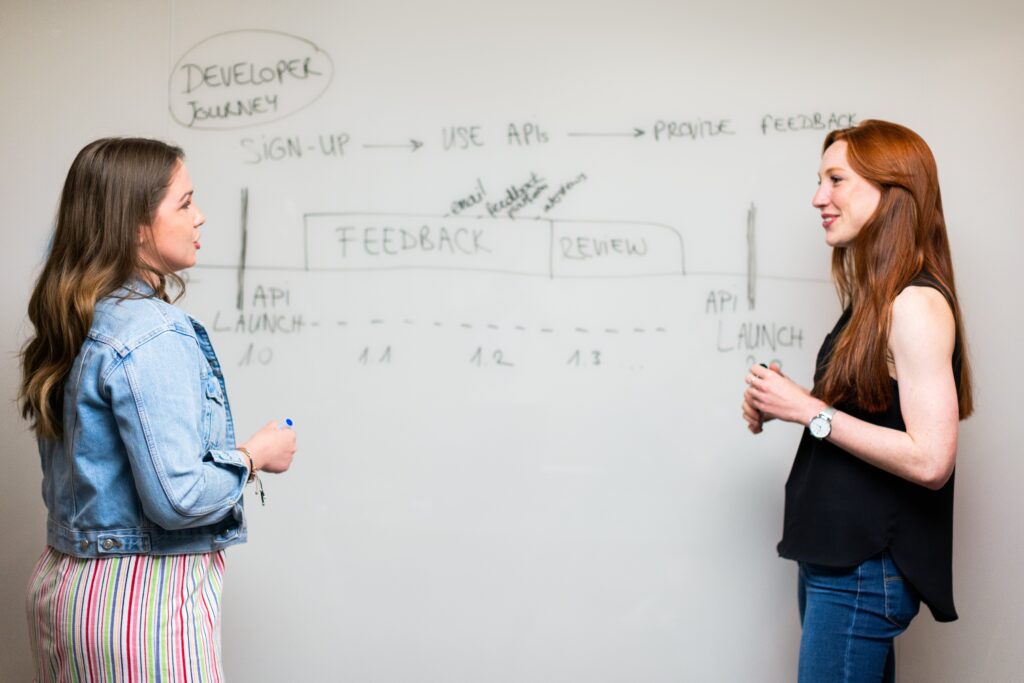In the dynamic world of business communications, conversation intelligence tools are becoming increasingly crucial for gaining strategic insights and enhancing customer interactions. Our detailed comparative analysis focuses on four of the market’s most prominent tools: Tetra, Gong, Chorus, and Avoma.
Our analysis is structured around key differentiators such as user interface ease, integration capabilities, specific functionalities like real-time guidance or sentiment analysis, and pricing flexibility. We also consider how each tool caters to different segments of the market, from small businesses to large enterprises, ensuring our guide is relevant to a wide range of readers.
Whether you are a startup looking to optimize customer interactions, a mid-sized company aiming to enhance your sales techniques, or a large corporation seeking comprehensive market insights, this guide will provide valuable information to help you select the conversation intelligence software that best aligns with your business objectives and operational requirements.
Table of Contents
Overview of Conversation Intelligence Tools
Conversation intelligence tools are designed to analyze voice conversations, typically in a business context. It employs advanced artificial intelligence (AI) and machine learning algorithms to transform spoken words into actionable insights.
Businesses use conversational intelligence software primarily to enhance customer experience, improve sales techniques, increase the effectiveness of marketing strategies, and generally gain deeper insights into customer needs and preferences. This technology is particularly popular in sales, customer service, and marketing departments.
Conversation intelligence tools are specialized applications designed to capture, analyze, and derive insights from voice or text conversations, particularly in business settings like sales calls, customer service interactions, or team meetings. These tools employ artificial intelligence (AI), machine learning, and natural language processing (NLP) to provide valuable insights from verbal and written communication.
Key aspects of these tools include:
- Transcription and Analysis: They transcribe spoken words into text and analyze the content for various elements such as keywords, topics, sentiment, and intent.
- Sentiment Analysis: By assessing the tone and emotion in conversations, these tools help understand customer mood and response, which is valuable for customer relationship management.
- Real-time Guidance: Some conversation intelligence tools offer real-time suggestions to users, such as sales reps, providing cues, answers, and conversational tactics based on the ongoing conversation.
- Data Aggregation and Reporting: They aggregate conversation data across multiple channels and provide reports and dashboards to highlight trends, performance metrics, and areas for improvement.
- Actionable Insights: Beyond analysis, these tools provide actionable insights, helping businesses to tailor their communication strategies, improve customer service, and enhance sales performance.
- Integration: Many of these tools can integrate with Customer Relationship Management (CRM) systems, enabling a seamless flow of information and a more comprehensive view of customer interactions.
Popular examples of conversation intelligence software include Gong, Chorus, Tetra, Avoma, and others. Each tool may have unique features or specialize in specific aspects of conversation analysis, but generally, they all aim to enhance the understanding and effectiveness of business communications.
The leap from general overviews to detailed analysis is where the actual value of conversation intelligence tools like Tetra, Gong, Chorus, and Avoma becomes apparent. Beyond basic transcription, these tools offer sophisticated analysis and actionable insights, bridging the gap between raw data and strategic business intelligence. In the following section, we’ll explore these tools’ distinct features and benefits, highlighting how they enhance communication, streamline decision-making, and provide a competitive edge in various business scenarios.

Features and Benefits of Conversation Intelligence Software Tools
Tetra
Tetra is a conversation intelligence tool known for its strong emphasis on structured research and data analysis. It’s designed to aid in-depth market studies and data-driven strategies, making it ideal for comprehensive market understanding and enhancing research efficiency.
Features:
- Formal Research Capability: Beyond capturing calls, Tetra is equipped to conduct structured research, making it valuable for in-depth market analysis.
- Insights Repository: Offers a fully accessible repository for storing and retrieving insights, enhancing knowledge management.
- Data Analysis and Synthesis: Tailored for researchers, it provides advanced tools for data analysis, synthesis, and interpretation.
- Participant Sourcing: Unique in its ability to source participants for research, expanding the scope and depth of conversational analysis.
Benefits:
- Comprehensive Market Understanding: Ideal for businesses that require deep market insights and consumer research.
- Centralized Knowledge Hub: Simplifies storing and accessing conversation data and insights.
- Enhanced Research Efficiency: Streamlines the research process with specialized tools and participant sourcing.
“Tetra’s platform results in better hypotheses, deeper insights, and more impactful interview results.”
—Thomas Ferguson, UX Researcher, LexisNexis
Avoma
Avoma is an AI-powered tool that excels in automated note-taking and keyword tracking during meetings and calls. It’s geared towards improving team training and communication efficiency, particularly through its asynchronous communication features and meeting documentation capabilities.
Features:
- AI-Powered Note-Taking: Automatically transcribes and takes notes during meetings and calls.
- Keyword Tracking and Analysis: Customizable tracking for specific conversational topics.
- Asynchronous Communication: Allows for time-shifted feedback on calls and meetings.
Benefits:
- Streamlined Meeting Documentation: Reduces the manual effort required for meeting notes.
- Improved Team Training: Facilitates the training and coaching of sales teams with transcript analysis.
- Enhanced Communication: Enables effective team communication through asynchronous feedback tools.
“Great tool to save time before, during, and after meetings. Smooth transcription and auto summarization that I used to have to do manually. It eliminated 3 tools I was using and consolidated them down into 1. And it syncs the summaries, recordings, and transcripts to my CRM!”
— Charles E., VP of Revenue (Small-Business)
Gong
Gong is a conversation intelligence platform focused on providing deep insights into sales performance and market dynamics. It is renowned for its deal and people intelligence features, comprehensive sales analytics, and tools for informed sales strategies and competitive market positioning.
Features:
- Deal and People Intelligence: Offers insights on sales pipeline and team performance.
- Market Dynamics Tracking: Monitors competitor mentions and market trends in conversations.
- Comprehensive Sales Analytics: Provides detailed analysis of sales interactions and strategies.
Benefits:
- Informed Sales Strategies: Helps in devising effective sales tactics based on real-time data.
- Targeted Coaching and Training: Enables personalized coaching programs using performance analytics.
- Competitive Edge: Keeps businesses informed about market and competitor dynamics.
“We can see the communication rate across the deal, both by email and phone. We can tell which deals are stronger, which ones have more back-and-forth, and which discussions are real conversations.”
—Marshall Hamilton, Director of Sales Strategy, Sprout Social
Chorus
Chorus specializes in momentum tracking and market intelligence, utilizing AI-driven data analysis to offer nuanced customer insights and accurate sales forecasting. It’s tailored to enhance strategic planning and understanding of customer behavior through in-depth analysis of sales interactions and market trends.
Features:
- Momentum Tracking: Analyzes deal progression and impactful interactions.
- Market Intelligence: Captures critical insights from customer communications.
- AI-Driven Data Analysis: Utilizes AI for deep analytical insights and visibility.
Benefits:
- Accurate Sales Forecasting: Aids in predicting sales outcomes and identifying opportunities.
- In-Depth Customer Insights: Provides a nuanced understanding of customer needs and behaviors.
- Enhanced Strategic Planning: Assists in formulating strategies based on AI-generated analytics.
“Streamline meetings and enhance understanding of client positions within the sales process. I loved its ability to review calls with management efficiently. This feature has greatly improved our sales process by allowing us to dive deep into client interactions and conversations. It helps us gain valuable insights into our clients’ perspectives, pain points, and expectations, ensuring we tailor our approach accordingly. It’s easy to pinpoint the next steps required in the sales process. This has been pivotal in ensuring a smooth transition between different phases of our sales pipeline, ultimately boosting our conversion rates.”
— Nicole T., Opportunity Development Representative, (Mid-Market, 51-1000 emp.)
Each tool offers a unique blend of features and benefits, catering to various aspects of conversation intelligence and business needs. With its focus on formal research and comprehensive data analysis, Tetra stands out for businesses that require in-depth market insights and a robust research-oriented approach.
Transitioning from the diverse features and benefits of conversation intelligence tools, we now focus on another crucial aspect influencing their adoption: the pricing landscape. Understanding how Tetra, Gong, Chorus, and Avoma are positioned in terms of cost is vital for businesses when deciding which tool aligns best with their financial constraints and value expectations.

Navigating the Pricing Landscape of Conversation Intelligence Tools
In conversation intelligence software, pricing is pivotal in decision-making, especially for businesses seeking value without compromising on features. Among the leading contenders – Tetra, Avoma, Gong, and Chorus – there are notable differences and similarities in their pricing structures.
Gong and Chorus: Catering to Larger Enterprises
Gong and Chorus, two prominent players in this market, do not openly disclose their pricing on their websites. Based on our and other users’ research, Gong’s services hover around an average cost of $1,400 per user/year, while Chorus demands about $1,200 per user/year. These prices generally align them with the needs of larger enterprises or upper mid-market businesses, making them less accessible for small to medium-sized businesses (SMBs). The rigidity in their pricing and usage terms often presents a barrier for a diverse range of companies.
Avoma: Flexible but with Limitations
Avoma introduces a more flexible model, starting with a free plan suitable for individual use. However, the free plan’s limitations are apparent, especially in meeting duration and recording restrictions. Their professional tier, priced at $200 per user/year, unlocks more features like summarization and collaboration. Avoma acknowledges the pricing gaps left by Gong and Chorus and tries to fill them by offering customizable plans based on specific functionalities a team might need.
Tetra: The Optimal Blend of Affordability and Versatility
Tetra is a compelling choice for SMBs seeking a cost-effective yet robust solution. Unlike Gong and Chorus, Tetra offers transparent and flexible pricing options catering to various business sizes and budgets. Starting at a more accessible price point, Tetra provides essential features like call recording, real-time analytics, and comprehensive CRM integration, including with platforms like Salesforce and HubSpot.
What sets Tetra apart is not just its affordability but also its focus on user experience and customization. The interface is designed for ease of use, ensuring businesses of all sizes can quickly leverage its capabilities without a steep learning curve. Additionally, Tetra’s flexible pricing model means that companies only pay for what they need, avoiding the ‘one-size-fits-all’ approach seen in some competitors.
Comparative Insights: Tetra vs. Avoma vs. Gong vs. Chorus
When comparing all four – Tetra, Avoma, Gong, and Chorus – in terms of providing insights into sales performance and customer sentiment, they each offer valuable features. However, Tetra’s edge lies in its ability to provide a high-quality, affordable solution accessible to a broader range of businesses. While Gong and Chorus target mid-market and larger enterprises with their higher pricing and complex feature sets, and Avoma offers a middle ground with some limitations, Tetra stands out as the most adaptable and budget-friendly option, especially for SMBs and startups.
Summary: Why Tetra Tops the List
In summary, while each tool has its strengths, Tetra’s affordability, flexibility, and user-friendly design make it a standout choice, particularly for businesses seeking a powerful conversation intelligence tool without the hefty price tag. Its approachable pricing model, coupled with a comprehensive set of features, positions Tetra as the optimal solution for businesses aiming to enhance their conversation intelligence capabilities effectively and economically.

Conclusion
In conclusion, exploring conversation intelligence tools like Tetra, Avoma, Gong, and Chorus reveals a diverse landscape of features and pricing models, each tailored to different business needs. Tetra distinguishes itself with its unique capabilities in formal research, participant sourcing, and comprehensive data analysis, making it exceptionally suitable for in-depth market studies and data-driven strategies. Avoma, Gong, and Chorus, while offering their own sets of valuable features, cater to specific segments with varying pricing and complexity.
Tetra’s blend of affordability, versatility, and a user-centric approach positions it as a desirable option, especially for SMBs and startups looking for practical yet economically feasible conversation intelligence solutions. Its ability to provide a high-quality, adaptable, and cost-effective tool without overwhelming users with complexity or high costs makes it a top contender in the conversation intelligence market. This comparative analysis underscores the importance of aligning tool selection with business objectives, operational needs, and budget considerations. Tetra is a particularly compelling choice for a broad range of businesses seeking to leverage the power of conversation intelligence.
Join us on the path to research excellence. Get your free Tetra account and transform your user research process.




